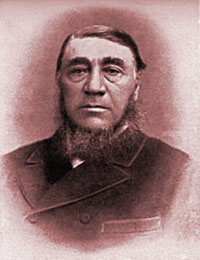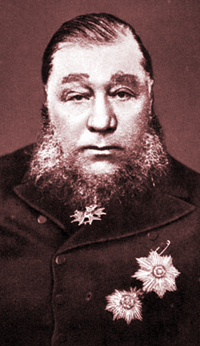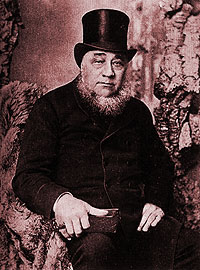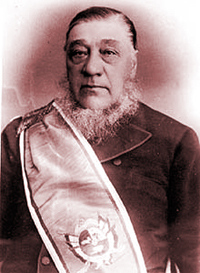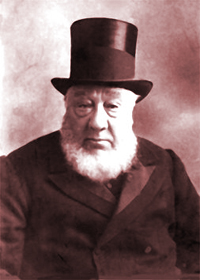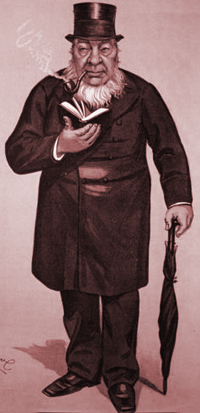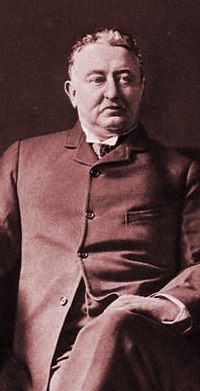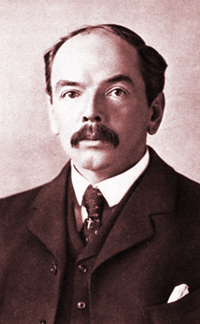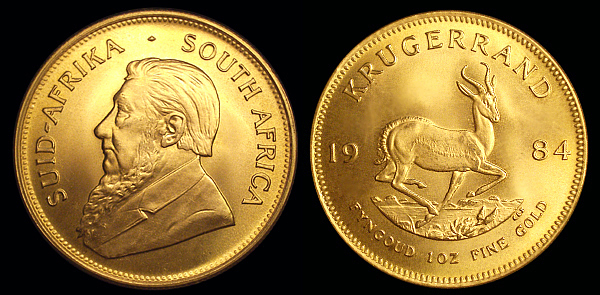
1oz KRUGERRAND - SOUTH AFRICA (KM 73)
Date: A.D. 1984
Obverse: Portrait bust left of Paul Kruger - SUID-AFRIKA / SOUTH AFRICA -
Reverse: Springbok antelope - KRUGERRAND 1984 FYNGOUD 1OZ FINE GOLD CLS
Engraver Obv: From original design of Otto Schultz by Tommy Sasseen
Engraver Rev: Coert Steynberg
|
This is a South African Krugerrand gold coin containing 1 ounce of gold. The Krugerrand is 22 karat alloyed with 2.826 grams of copper which gives it its darker hue and brings the actual weight of the coin to 1.0909 ounces. The Krugerrand was minted as a way to market the large amount of South African gold to the world market and was the first true bullion coin as it has no face value and its value is purely derived by the current market value of its gold content. Not long after the Krugerrands debut in 1967 many western nations prohibited trade with South Africa due to apartheid (meaning separate or apart) making it illegal to trade in South African gold. The Krugerrand was effectively banned until the abolishment of apartheid and trade with South Africa resumed in the mid 1990's. Still today there are those who refuse to own a Krugerrand because of the controversy over South African Apartheid. The Krugerrand gets it name from Paul Kruger who is depicted on the obverse of the coin. Paul Kruger was prominent resistance leader against the British and served four terms as possibly the most recognizable president and political figure of the old South African Republic. The obverse depicts a springbok antelope, a national symbol of South Africa. Stephanus Johannes Paulus Kruger was born on October 10, 1825 at Bulhoek, his family farm near the town of Craddock in the eastern province of South Africa. His family was originally from Prussia and had moved to South Africa in 1712. His parents were Casper Jan Hendrik Kruger and Elsie Francina Steyn who made a somewhat comfortable living as semi nomadic landless ranchers. In 1835 his father and close relatives crossed over the Orange River in search of better grazing on the banks of the Caledon. A year later his father met Hendrik Potgieter, one of the leaders of what would be called the 'Great Trek', and the family joined him and many other Boer who moved in a large convoy to settle near the Sand river. Eventually they crossed the Vaal river where his father and uncle Gert were among the founders of the town of Potchefstroom in the south east of the Transvaal province. The 'Great Trek' was an eastward and north-eastward migration from the Cape Colony by mostly European descendant semi-nomadic farmers, herders and artisans called the Boer (meaning farmer). Those like the Krugers who joined the Great Trek did so to escape constant border conflicts, British colonial rule that often conflicted with their beliefs, and to capture the opportunity to settle new lands and guide their own destiny. They were called Voortrekkers and they joined with Trekboers, nomadic pastoral descendants of Dutch settlers, French Huguenots, German Protestants, and other European settlers as well as some Indian slaves, whom had already begun migrating from the areas near Cape Town, Paarl, Stellenbosch and Franschhoek during the 1690s and into the eastern Cape frontier throughout the 1700s and would later collectively be called 'Boer'. During the Great Trek the Voortrekkers would come into conflict with the Zulu after Voortrekker leaders Piet Retief and Gerhard Maritz, along with almost half of their followers, were lured to a feast under the pretence of a land treaty and massacred by King Dingane and his warriors. The Zulu, 10,000 strong, then proceeded to attack the 470 strong forces of Andries Pretorius at what would be called the Battle of Blood River. The Boers armed with muskets and taking fortified positions suffered only 3 injuries and no fatalities while 3000 Zulus were killed in the attack. They attributed their victory to a vow they had made to god, future generations would commemorate the 'Day of the Vow' as a public holiday. Events like these would go far in shaping the Boers attitude breeding distrust of not only native tribes, but the British and most outside influences making them a fiercly independant and self sufficient people. This was the life of a Boer and young Paul Kruger. He was raised amongst hardy people who, over generations of living off the land, had became accustomed and well suited to the harsh life and rough terrain of the veld (meaning field, a term used much like 'outback' in Australia). Kruger received very little formal education and instead, like many, he learned to care for the livestock and learned what he would need to know to survive the dangers and hardships of a life in the wilds of South Africa. He did learn to read an write and was deeply religious from a very young age and was rarely to be found without his bible in hand. When Paul was just 16, he received his own farm in the northern area of Transvaal near the town of Rustenburg and named it Waterkloof and In 1842 he married Maria du Plessis. In 1845 he and his family accompanied Potgieter to the Eastern Transvaal where they helped to find Ohrigstad. After they returned his wife and infant son died. A year later he would marry Gezina du Plessis, a cousin of his first wife. She would be his second and final wife becoming a lifelong companion to Kruger and bearing him sixteen children, Seven daughters and nine sons, some of whom died in infancy. He entered military life at the age of 17 where he showed himself an able leader rising quickly in the ranks, starting as a field cornet in the commandos and eventually becoming Commandant-General of the Transvaal army before the age of 30. He also became politically active at this time and accompanied Andries Pretorius to the Free State for the signing of the Sand River Convention (1852) and helped to draft the Transvaal constitution of 1858. He was appointed as a member of a commission of the Volksraad (the parliament) and took a prominent role in ending the political quarrel between the Transvaal leaders, Stephanus Schoeman, and M.W. Pretorius. In 1873 Kruger resigned his position as commandant general with the election of the liberal President T.F. Burgers saying in a speech to the Volksraad: “Your honor, I had done my best to prevent your election, principally because of your religious views, which appear to me to be mistaken, but, as you now have been elected by the majority, I submit as a good republican to the vote of the people trusting that you are a more earnest believer than I thought, in which case I will congratulate you with all my heart.” The next year Kruger was elected to the Volksraad and when the Sekhukune war broke out in 1876, Kruger declined to lead the commandos and the defeats they suffered during the war injured the prestige of the president. A presidential election for early 1877 was planned and Kruger decided to run. The election never took place as the Republic was annexed the by the British Empire, the parliament left the country and Transvaal was left leaderless, although Kruger was elected vice-president by the Volksraad on the eve of the aborted election. Kruger followed a policy of passive resistance against the British and he visited London twice in an attempt to reverse the annexation to no avail. With the increasing opposition to british occupation it was decided to restore the republic and Kruger went to work trying to keep his own people from taking up arms while trying to negotiate with the British. Eventually riots broke out in November 1880 and Kruger was no longer able to restrain the people. At a gathering at Paardekraal in December 1880 they restored the republic and Kruger was once again appointed as vice-president. With Piet Joubert and M.W. Pretorius he formed a triumvirate to lead the government. It was, essentially, a declaration of war against the British occupation. During the First War of Independence (First Anglo-Boer War) Kruger continued his efforts to come to an agreement with Britain. In an extraordinary session of the Volksraad in Heidelberg on 15 April Kruger made one of the most important speeches of his career: “I consider it my duty plainly to declare before you, and before the world that our respect for Her Majesty the Queen of England, for the government of Her Majesty, and for the English nation, has never been greater than at this time, when we are enabled in this treaty to show you a proof of England’s noble and magnanimous love for right and justice... I believe that I am acting according to the treaty of peace when I express in your presence the hope that all the inhabitants of the Transvaal will, meanwhile, abstain from all words and deeds which could lead to the perpetuation of that feeling of hostility which must now and forever be eradicated altogether. Let all citizens offer and accept the hand of reconciliation in order to establish a happy state”. The British forces were defeated in the decisive battle at Majuba in 1881 and British authority accepted Kruger's proposal of qualified independence which led to an armistice in March 1881 and the Pretoria Convention in August of the same year. The right to self govern domestic afairs was restored to the South African Republic but Britain would continue to control all foreign policy. In 1883 new elections were held which Kruger won. The discovery of gold on the Witwatersrand caused serious upheaval in the Transvaal. It saw an influx of foreigners (uitlanders) into the Republic seeking their fortune, a gold rush that was aided by new rail lines laid to make it easier to trade with surrounding colonies and ports. The somewhat xenophobic Boer saw these intrusion as a serious problem that Kruger would have to deal with as he was again reelected as President in 1888. The following is a speech he delivered as president after the 1888 election: “Consequent upon the treasure found here, new people have come into the country, and I am glad that they have done so. It rejoices me to see that they are working with the inhabitants of their State; that they follow the dictates of law and order; that they subject themselves to the laws of the state... Those of you who wish to be numbered with us, desire to be naturalized and so share in the privileges granted to the burghers of the Republic, I greet you and welcome you, no matter to what nationality you belong. .. There is a second class to whom I wish to say something, namely you have not come to settle here, who have left your former fatherland, but do not wish to be naturalized but when you have gathered your riches intend to return to the country form from where you came. .. We do not grudge you the gains you have made here, but since you are here you must subject yourselves to the laws of the land, and you have the right to demand form the Government the protection of your possessions. There is a third class of new arrivals, those who have fixed your residence here, but do not wish to be naturalized, who prefer to live among strangers... we will treat you as strangers, but you also have the right to obtain protection for yourselves and your possessions under the laws of the country.” Kruger was afraid that the growing population of uitlanders that now out numbered the Boer, would out vote the older inhabitants of the Republic. To counter this possibility he made the conditions of naturalization more difficult restricting the vote for presidential and local Volksraad elections to naturalized citizens who had been in the country for fourteen years. To satisfy uitlander interests a second Volksraad was created, to be elected by naturalized citizens of two years standing. Inevitably tensions rose and by 1893 Kruger’s popularity had declined though he managed to be reelected for another term. Kruger is reputed to have predicted the events that were to follow saying that with the discovery of gold they should not rejoice but weep as it would "cause our land to be soaked in blood." A new era in the relations between Britain and the South African Republic began with the appointment of Joseph Chamberlain to the Colonial Office in 1895. An avowed imperialist, his goal was to federate South Africa under a British rule. Relations between the two governments deteriorated further, following the abortive Jameson Raid in December 1895, intended to trigger an uprising by the primarily British expatriate workers and to overthrow the government of the South African Republic. To achieve this Cecil Rhodes, a british born businessman and founder of the DeBeers diamond company, undertook to support the Uitlanders on the Rand with an armed force from Bechuanaland. The so-called Reform Committee in Johannesburg hatched the plot and smuggled in weapons while Leander Starr Jameson, formerly a physician to Kruger and the Administrator of Southern Rhodesia, prepared to support the action with a mounted force. On January 2, 1896 the Boers captured Jameson's force at Doornkop and Kruger forced the rebels in Johannesburg to surrender. Kruger refused to execute Jameson and instead delivered him with his men to the British authorities. Even with this show of cooperation, Chamberlain and the British Government continued to treat the South African Republic more as a British colony than an independant state. Kruger and the Boer saw themselves as a separate people and separate they would remain even if it meant war. They were resolved to self rule without British interference. The situation progressively worsened and Kruger turned to the Orange Free State for support. In 1898 a defensive and offensive alliance was negotiated between the two republics. This meant that in case of a war they would be united against a common foe. Both sides now prepared for war. Kruger felt that the Republic’s only chance of winning the war was to go on the offensive, they sent an ultimatum to Britain demanding that they move their troops from the Transvaal borders within 48 hours. War broke out on October 11, 1899. By now Kruger was in his fifties and too old to go to war himself and the Boer forces usual guerilla tactics while effective did not break the British resolve and they found themselves in retreat. Kruger addressed the Volksraad for the last time in May 1900, pleading for continued faith in the national cause but he was eventually forced to retreat along with the military and in August 1900 it was decided that the best way Kruger could serve the war effort was to travel to Europe and plead for assistance. His wife was too ill to travel with him and so he boarded the Gelderland, a cruiser sent by Queen Wilhelmina of the Netherlands, and set sail for Europe. His wife died on July 20, 1901. He was unsuccessful in convincing those who would receive him to aid the South African Republic in its fight to retain independence. Looking to break the iron resolve of the Boer resistance the British burned homes and rounded up the wives and children of the Boer putting them in concentration camps where an estimated 30,000 died of various illnesses and malnutrition. They also interred around 100,000 natives though no record was kept as to the death toll for this group. Most Boer fighters captured were removed from the area and shipped out of South Africa for fear they would be freed by sympathetic locals and the added burden to the already problematic task of supplying not only troops but the women and children held in the camps. Most POWs were sent to Saint Helena and Ceylon, smaller groups were sent to Bermuda and India as well as locations outside the British empire such as Portugal. This finally broke the resolve of the Boer resistance and after a long, hard fought (and often brutal) war the Boer surrendered on May 31, 1902. Kruger remained in the Netherlands for the remainder of the war eventually moving to Clarens, Switzerland where he died on July 14 1904. His body brought to Cape Town on a British ship where On December 16, 1904 he was buried in what is now known as the Heroes’ Acre in Pretoria. The Kruger national park is named after him and he remains a beloved national hero to many who fondly refer to him as Oom Paul (Afrikaans for "Uncle Paul"). Paul Kruger was a large, heavy set man who struck a powerful figure. He had brown hair that turned stark white in old age and wore a beard with no mustache. His usual attire was a black suit and coat with a black top hat. He was a heavy smoker and was seldom seen without his pipe. |

